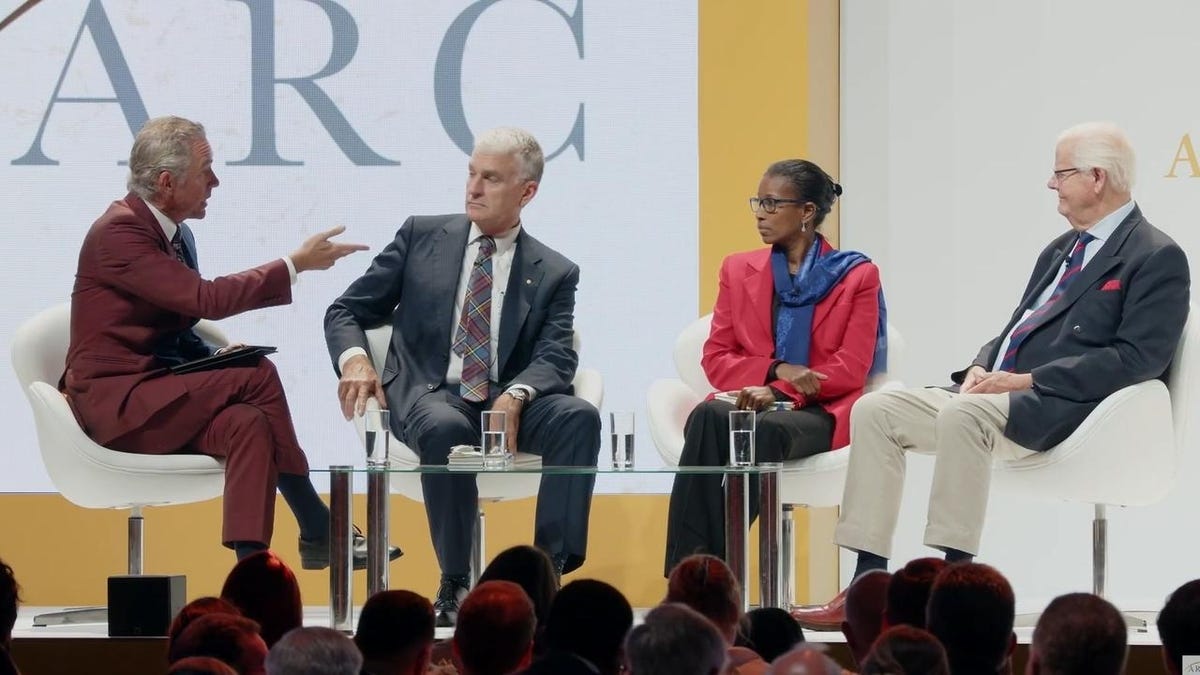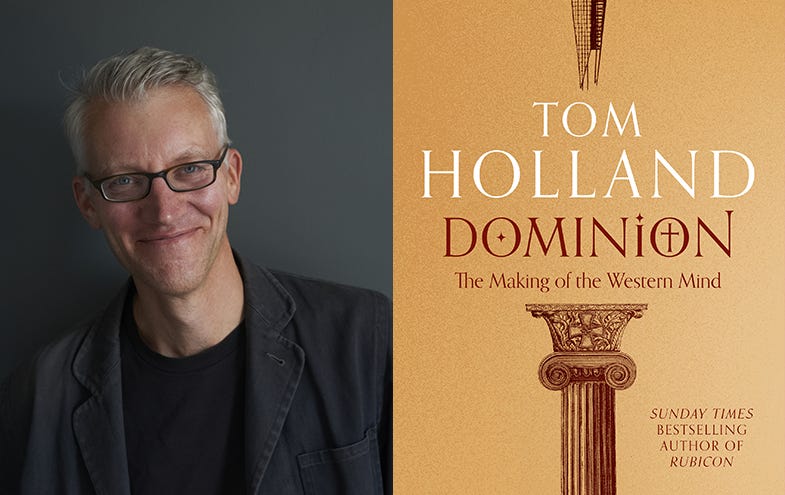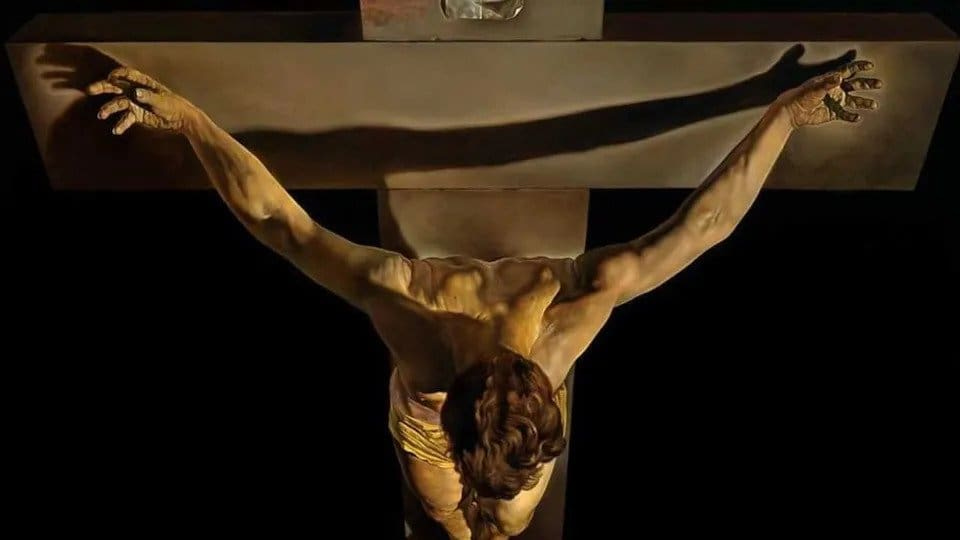How Christianity Answers the Problems of Our Times
Modernity, ARC, Ayaan Hirsi Ali, counter-enlightenment, & the return of historic Christianity
The setting sun of secular liberalism
In the Aftermath of the ARC (Alliance for Responsible Citizenship) conference, people are waking up to the fact that neither secular liberalism nor its alternatives are equipping them for the current cultural landscape.
As Jonathan Pageau pointed out, we can’t discuss the future without using inherently religious language. Amid much talk about the positives of the West we’ve inhabited, participants at ARC couldn’t help but talk using Christian vocabulary about pursuing a better future.
This may be one of the most important Christian speeches of our time. Check it out.
Ayaan’s story
Following the conference, Ayan Hirsi Ali became an archetype of this phenomenon in her unlikely conversion to Christianity. Secular liberalism doesn’t have the tools to equip us for the road ahead, and neither do its alternatives.
If you don’t know her story, it’s worth the read. I’ve been following Ayan for some years now after being featured on Sam Harris’s podcast when she was a fellow New Atheist. After fleeing her radical Islamic upbringing, she found solace in Europe and became a powerful thinker, writer, and promoter of atheistic secular liberalism in the face of religion.
Her post discussing her conversion back to an Abrahamic faith came as a shock to many, sparking many different reactions. To many atheists, Ayaan’s conversion was a political move. Maybe she is picking a new tribe to associate with. This news drove Richard Dawkins to write a letter in dismay at losing a fellow convert to atheism.
We shouldn’t hang our faith on our favorite people becoming Christians. But if you take the time to listen to Ayaan’s story, you might find a familiar one. She was severely depressed. Not all the therapy in the world could solve her nihilism. The narrative software she was running didn’t cut it. Instead of simply charting a path to reason and progress, atheism left a gaping hole in her sense of meaning in life. It was in therapy that she was asked what her ideal god looked like if she could create one. Ayaan realized that if she had to create a god to worship, that god, that ideal, just looked like Jesus. In the face of radical Islam, Nihilism, and other cheap alternatives, the logos of love is what gripped her. And it had been there all along, veiled by names like “progress,” “reason,” and “secular liberalism.”
Reflecting on her conversion, Ayaan cited Tom Holland’s book, Dominion, as influential in getting her to see the Christian roots of the secular liberalism she loved. If you haven’t read Dominion, it’s a monumental exposure of secular liberalism as being, yes, Christian.
While Modernity is full of things worth criticism, I warn people when they take their criticism too far. The very secularism we combat finds its roots in Christian thought. People are realizing that the roots of everything they love are deeply Christian.
Shoutout to
for doing the narrative synthesis helping me think through all of this as I try to articulate myself. You can check out his YouTube channel for excellent commentary on all this.How Christianity answers the problems of our times
Despite church attendance decline, the rise of the ‘nones’, and lost faith in Western culture, Jesus keeps showing up in the public conversation.
New atheism is on its way out. Secular liberalism seems to be approaching its sunset. Islam has doubled down in showing its true colors as a macho religion (Muhammed Hijab, the number one Muslim apologist, is an excellent example of this). In Paul’s words, it turns out that secularism was just “Christianity Lite.” New atheism was just assuming Christian ethics and opened the door to nihilism, leaving people cosmically dislocated. It was just as politically and culturally influenced as the religious belief it accused. Meanwhile, many have been reminded of the Muslim majority’s explicit incompatibility with Western democracy in recent times.
It’s in the midst of this, historic Christianity has shown forth as a wholistic worldview. When your civilization is on the brink of collapse, you need to belong to a citizenship that isn’t from this world. We cannot create eternal paradise on earth, despite the aspirations of liberalism. Neither can we afford luxury beliefs anymore. Chaos will keep rearing its ugly head because the old creation is still with us.
In the face of chaos, we need a spiritual paradigm that factors in catastrophe as a given. In Christian terms, we need practices to keep one foot in this world outside Eden and one foot in the new creation. The cross and resurrection reveal the fundamental pattern of reality for us to emulate. We must live as exiles and citizens of the heavenly kingdom.
Historic Christianity has practices that cultivate meaning people are desperately seeking in strange ways. Prayer, fasting, confession, study, and meditation, all are pieces of the puzzle. But the key is union with Christ by the Spirit.
Chaos is inevitable. The question is what we use to confront it. In the words of a well-known psychologist, “You need meaning that will sustain you, even through catastrophe.” We can’t avoid talking about him. Enter the outside man doing the job of a public theologian just when the Church needed one. Dr. Jordan Peterson.
As a note to end, Chris Williams just had an excellent conversation with Jordan Peterson. This may be one of Jordan’s best since 2017. The conversation takes off in the second half of the video as Peterson discusses what he believes to be a “counter-enlightenment.” Check it out.
As the Church, we ought to take notes on how we articulate our faith in a way that is as refreshing and ancient as its origins. Faith can no longer be a list of options to choose from, but how we make sense of everything around us. We need to participate in a grander story than the ones we’ve been telling ourselves for the past centuries since the Enlightenment.






